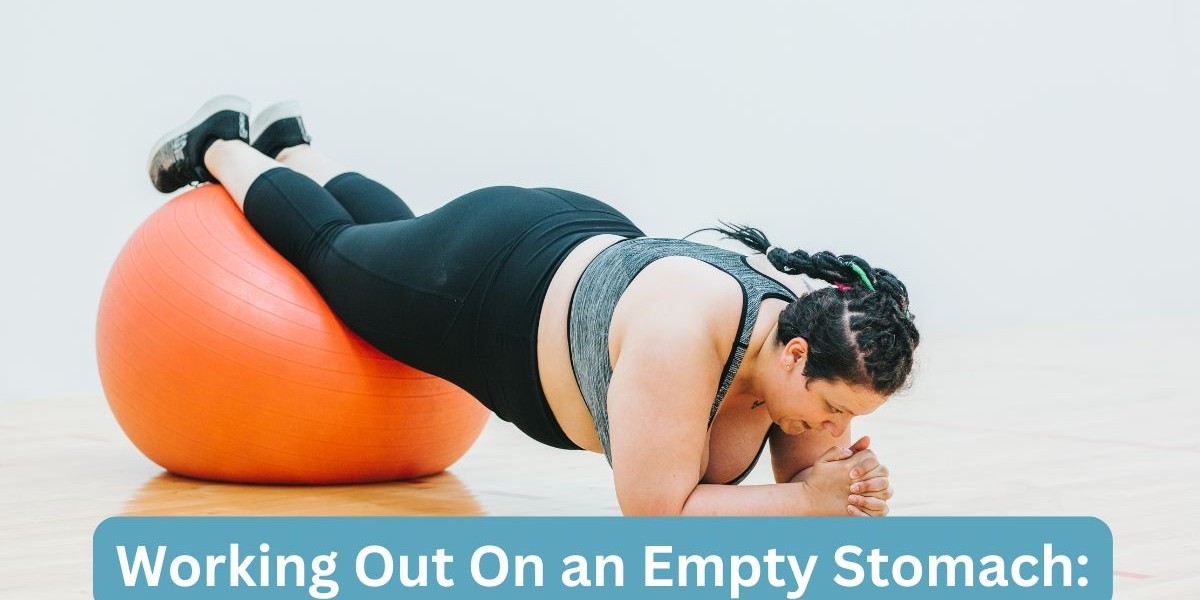Table 1
Introduction: The Concept of Working Out on an Empty Stomach
Have you ever considered skipping breakfast before hitting the gym? Youᴙve probably heard that working out on an empty stomach, also known as ᴜfasted cardio,ᴝ can help you burn more fat. But is it really true? In this article, weᴙll dive deep into whether exercising before eating is actually effective for fat burning, the science behind it, and whether itᴙs the best approach for everyone.
What Does ᴜWorking Out on an Empty Stomachᴝ Mean?
Working out on an empty stomach refers to exercising in a fasted state, typically after a night of sleep, without consuming any food. Most people are in a fasted state after waking up since they haven't eaten for several hours. This practice is especially popular in the world of weight loss, where itᴙs believed to maximize fat burning during workouts.
Benefits of Exercising Before Breakfast
One of the main reasons people swear by working out before breakfast is the potential for burning more fat. In a fasted state, the body has lower glycogen (stored carbohydrate) levels, which means it turns to fat as a primary energy source during exercise. Some studies suggest that fasted cardio may help reduce body fat percentage more effectively than exercising after eating.
What Happens When You Work Out on an Empty Stomach?
When you exercise in a fasted state, your body begins using fat stores for energy, potentially helping with fat loss. However, the body also becomes more efficient in using fat during workouts, especially after long periods of fasting or low-carb eating. As a result, it may burn fat, but this can vary depending on the intensity and duration of your workout.
The Science Behind Fasting and Fat Burning
Itᴙs important to understand the physiological processes behind fasting and fat burning. When you skip a pre-workout meal, insulin levels drop. This triggers the body to release stored fat to be used as fuel. However, fat burning doesnᴙt necessarily mean that fasted exercise is more effective in the long run for fat loss.
How the Body Burns Fat During Exercise
Your body burns fat during exercise by breaking down triglycerides stored in fat cells and converting them into energy. This process, known as lipolysis, is more likely to occur when insulin levels are low, such as during fasting. For light to moderate workouts, fat may be the primary fuel source, especially if carbohydrate stores are depleted.
Hormonal Changes That Aid in Fat Loss
Several hormones play a role in fat burning, including cortisol and adrenaline. During fasted exercise, cortisol (a stress hormone) increases, which can break down stored fat. Adrenaline also rises, which helps mobilize fat from fat cells. These hormonal shifts are believed to aid in fat loss, but they also come with potential side effects like increased stress on the body.
Is It Effective for Weight Loss?
Many individuals turn to fasted workouts for weight loss. But is it truly more effective than eating before exercising?
Fat Burning vs. Muscle Loss
While fasted workouts may help burn fat, thereᴙs also a risk of muscle breakdown. When the body doesnᴙt have readily available carbohydrates from food, it may start to break down muscle protein for energy, particularly during intense workouts. This could hinder muscle growth and long-term fitness goals.
Studies on Fasting and Weight Loss
Some research supports the idea that fasting helps burn fat, but the evidence is mixed. A study published in the American Journal of Physiology found that fasted exercise resulted in higher fat oxidation, but other studies have shown minimal long-term fat loss compared to eating before workouts.
Potential Risks of Working Out on an Empty Stomach
While there are potential benefits, working out on an empty stomach isnᴙt without risks.
Energy Levels and Performance
One of the downsides of exercising in a fasted state is decreased energy levels. Without the fuel from food, you may experience fatigue, dizziness, and decreased performance. This can affect the quality of your workout and hinder your overall progress.
Risk of Overtraining and Injury
Fasted workouts can increase the likelihood of overtraining, especially if you exercise intensely or frequently without proper nutrition. Overtraining can lead to injury, exhaustion, and muscle loss, which ultimately harms your fitness goals.
Best Practices for Fasting Workouts
If you decide to try fasting workouts, there are ways to make the experience more effective and safer.
What Type of Exercise Is Best While Fasting?
Low to moderate-intensity exercises like walking, jogging, or light cycling are ideal when fasted. These exercises allow your body to use fat as a primary energy source without overly taxing your muscles or cardiovascular system.
Pre-Workout Tips for Fasting
If youᴙre planning on working out in a fasted state, consider staying hydrated and incorporating light stretching or warm-ups. Also, avoid high-intensity workouts on an empty stomach unless you're well-conditioned to handle it.
Who Should Avoid Working Out on an Empty Stomach?
Certain people should avoid fasted workouts due to health risks or specific fitness goals.
People with Specific Health Conditions
Individuals with diabetes or low blood sugar should avoid fasting workouts as they may experience hypoglycemia (low blood sugar), which can lead to dizziness, fainting, or more serious complications.
Risks for Beginners and Those New to Exercise
If youᴙre new to exercise, itᴙs better to have a pre-workout snack or meal to fuel your body. Going into a workout on an empty stomach without proper conditioning can be overwhelming and may negatively affect your performance.
Alternatives to Fasting for Fat Loss
If fasting isnᴙt for you, there are other effective methods for fat loss that donᴙt involve skipping meals.
Nutrient Timing vs. Fasting
Nutrient timing involves consuming the right foods at the right times to optimize fat burning and muscle growth. For example, eating a balanced meal with protein and healthy fats before a workout can help boost energy levels and improve performance.
Balanced Approach to Fat Loss
A combination of a healthy diet, consistent exercise, and proper nutrition can help you achieve fat loss without the need for fasting. This approach may be more sustainable and beneficial in the long run.
Conclusion: Is Fasting the Best Approach for Everyone?
In conclusion, while working out on an empty stomach has potential benefits, it's not the best approach for everyone. If youᴙre looking to burn fat, itᴙs important to weigh the pros and cons of fasting and listen to your body. For some, fasting may be effective, but for others, eating before a workout may lead to better performance and results.
Key Takeaways
- Fasting can increase fat burning, but it may also lead to muscle loss.
- Low-intensity workouts are ideal for fasted exercise.
- Individuals with health conditions should avoid fasted workouts.
- A balanced approach to nutrition and exercise is often more sustainable for fat loss.
Final Thoughts on Exercising on an Empty Stomach
While fasting workouts have gained popularity for fat loss, they arenᴙt the only way to achieve fitness goals. Choose an approach that works best for your body, lifestyle, and health conditions.










